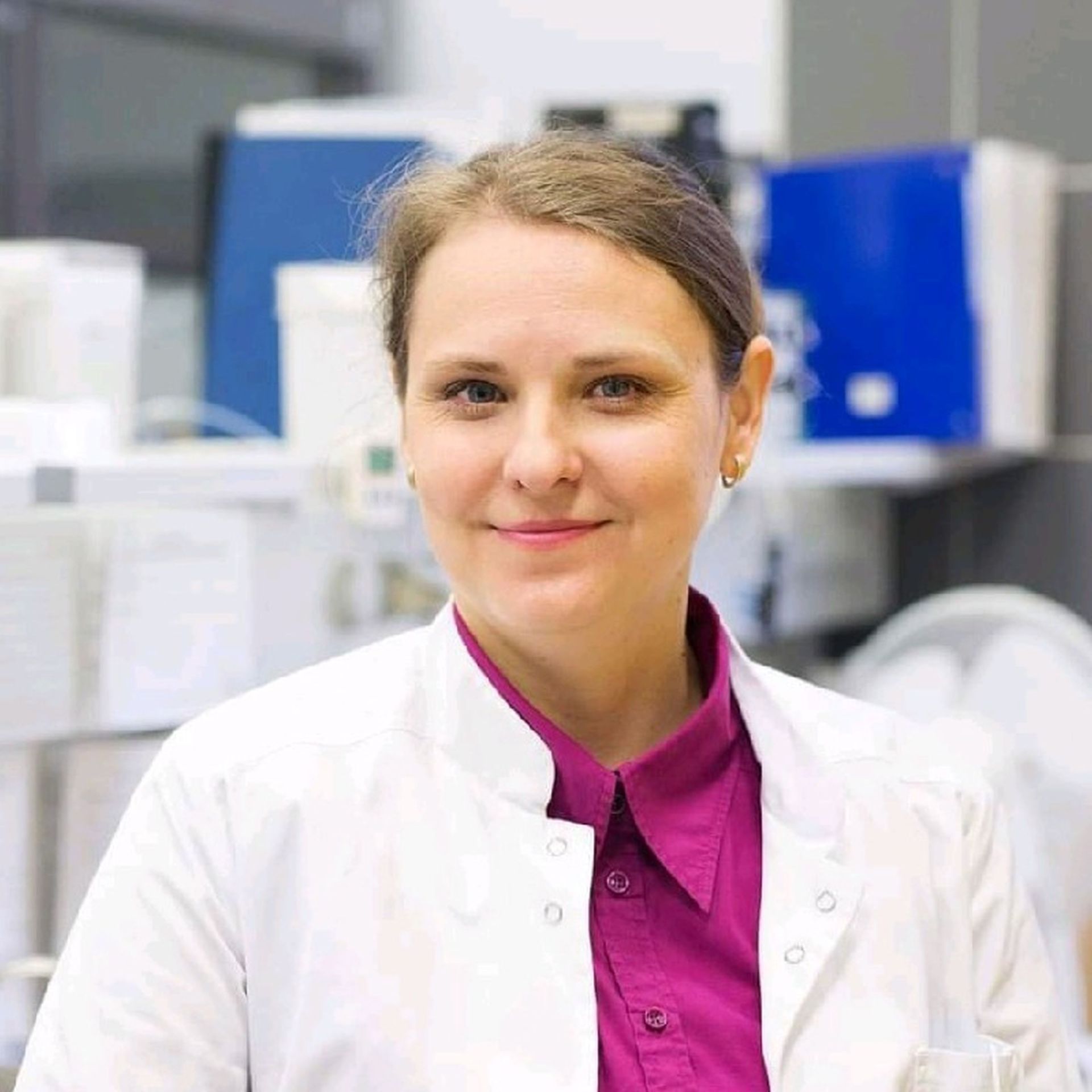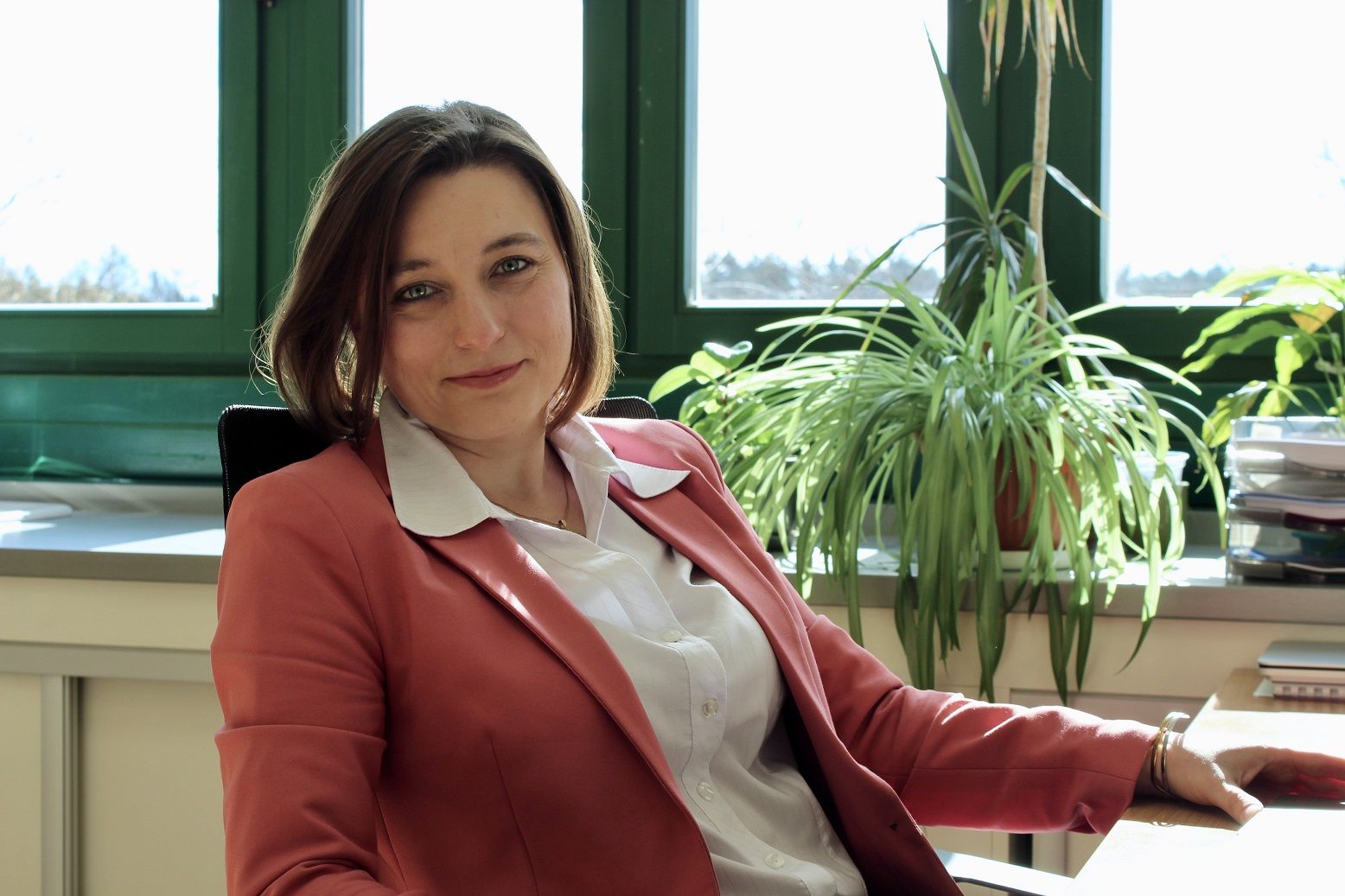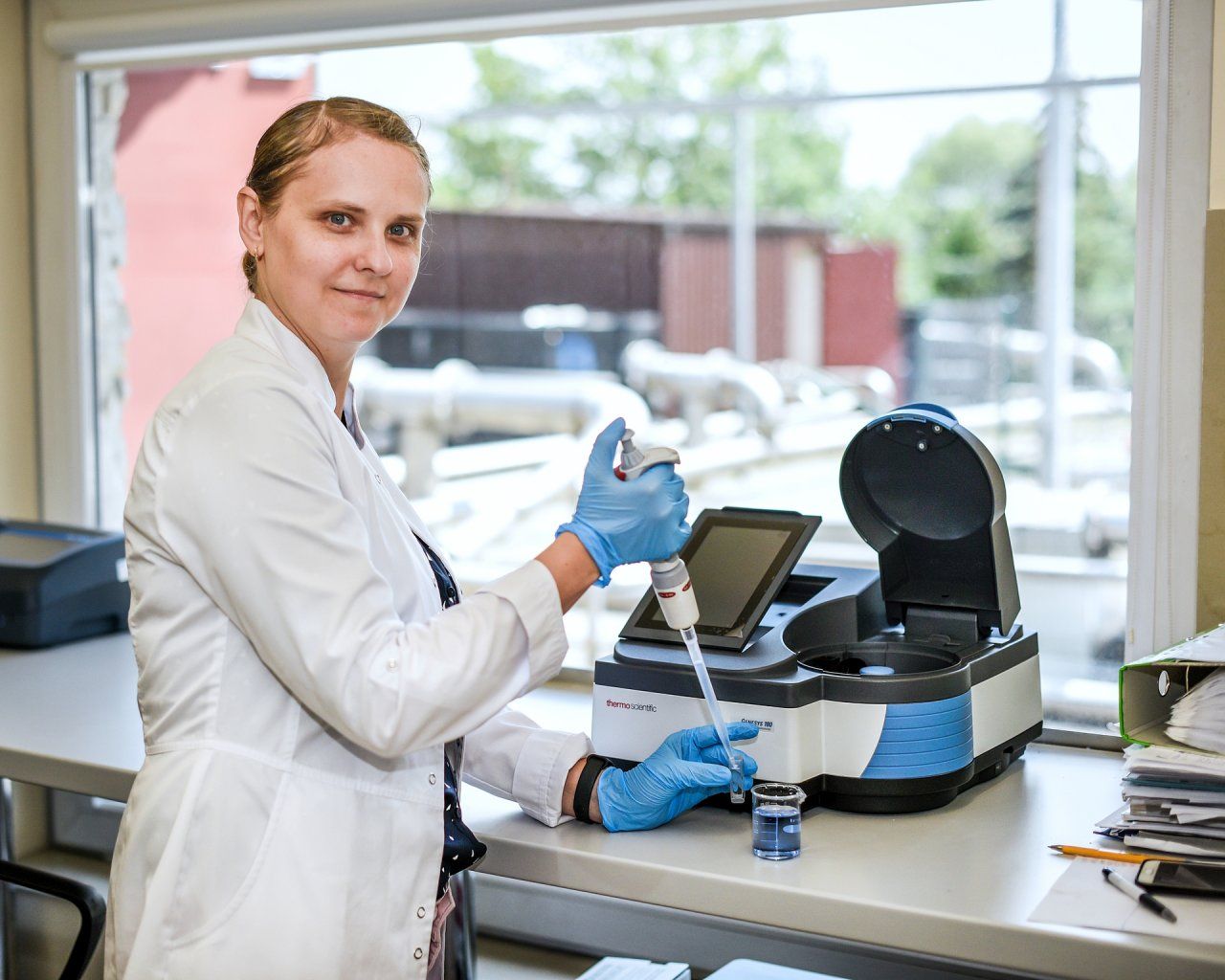The Polish Young Academy PAS (AMU PAN) has launched a long-term programme entitled “Scientific Excellence Has No Gender” in order to raise awareness within the community of current disparities between men and women in science and call for new solutions that would allow us close the gap. The programme started in February with a conference organised in partnership with the NCN at the Adam Mickiewicz University in Poznań. The conference presented Polish reports on the situation of men and women in science, including one published last year by the NCN’s Analysis and Evaluation Team and the Committee of Research Activity Analysis at the NCN Council. We talked to professors Anna Dyrdał and Marta Gmurek from AMU PAN, the masterminds of the programme.
A spotlight on work culture
Anna Korzekwa-Józefowicz: The conference you organised was a great success. But the audience consisted mostly of women. How do you explain the low representation of men?
 Marta Gmurek, photo from private archive
Marta Gmurek: That is a very good question. 30% of people who registered were men; clearly, they didn’t show up in the end. But we’ve been getting feedback that men are interested in the subject. Even if they don’t see a problem themselves, they do want to know why women think that there is discrimination against them.
Marta Gmurek, photo from private archive
Marta Gmurek: That is a very good question. 30% of people who registered were men; clearly, they didn’t show up in the end. But we’ve been getting feedback that men are interested in the subject. Even if they don’t see a problem themselves, they do want to know why women think that there is discrimination against them.
One of our male colleagues at the university recently said that he would like to go on parental leave but he was afraid someone would take his job while he was away. We made him understand this was a form of pressure and discrimination. And it’s something that women feel every day, but the difference is we can’t just say “OK, I won’t take that leave then”.
Anna Dyrdał: Perhaps the academic community wasn’t really sure what to expect of a conference like that. The atmosphere at gender equality events can vary and perhaps we didn’t make it clear enough we really wanted to start a serious, factual debate about the solutions that would ultimately serve both men and women.
But we did achieve our goal, because many people finally realised that there is a point in talking about these issues.
MG: After the conference, we got a lot of feedback from both men and women, telling us they would like to take part in any future follow-ups to this initiative.
Men specifically asked in their messages whether we were also planning to discuss age discrimination in the future. It’s a problem I think is never raised and a lot of people feel they are excluded from decision-making bodies despite their impressive research record because they are considered too young.
AKJ: The conference is part of a larger initiative under the same slogan, “Excellence Has No Gender”. What else do you have in store?
 Anna Dyrdał, photo from private archive
AD: We have prepared training courses on how to write and implement a gender equality plan, which we will be offering in cooperation with the PolSCA PAS office in Brussels. We are also planning for a series of online meetings devoted to equality issues. We will publish a book to bring together everything that we talked about at the conference and the idea is also to present a comprehensive summary of all the equality reports prepared by various institutions. We want to show how they correlate with one another and point out the main hurdles to increasing women’s participation in science.
Anna Dyrdał, photo from private archive
AD: We have prepared training courses on how to write and implement a gender equality plan, which we will be offering in cooperation with the PolSCA PAS office in Brussels. We are also planning for a series of online meetings devoted to equality issues. We will publish a book to bring together everything that we talked about at the conference and the idea is also to present a comprehensive summary of all the equality reports prepared by various institutions. We want to show how they correlate with one another and point out the main hurdles to increasing women’s participation in science.
MG: In the summer, we will also announce a new programme, “Girls in Science”, in cooperation with Women in Tech: Perspectives. And in the longer term, we are planning a social campaign to raise public awareness of hidden bias and promote gender equality reforms. We will be modelling our campaign on the Belgian Young Academy, where this has already been carried out.
AKJ: It seems that, in recent years, a lot has been done to level the playing field for men and women. Many institutions have adopted measures such as the gender equality plans you mentioned before. What do you think are the main barriers that are still continuing to prevent young female scientists from unleashing their potential and thus stunting their careers?
MG: The greatest problem is that women get little support from the community. Women and men are expected to deliver identical results; no allowances are made for the fact that if a woman starts a family, her career may progress at a slower rate.
On top of that, our research indicates that women are burdened with many additional, unpaid administrative tasks. Positions that involve extra remuneration are mostly taken by men.
Women’s research achievements are also frequently not recognised or respected enough. I have repeatedly been in situations where my male colleagues were addressed by their academic titles, while I was just referred to as “Marta”, even though I had the most impressive academic record in the room.
During our conference, one woman said she had once been told “she has done great for a woman”.
AD: Men’s and women’s careers in science unfold a bit differently. For women, who still take on caretaking roles more often than men, the rate of progress is frequently slower. It is important to consider these career breaks and design solutions that would make it easier for them to quickly go back to their research.
Another thing is the work culture. The purpose of our initiative, really, is to put a spotlight on work culture and call for respect for all, regardless of gender, but also origin, ethnicity or political beliefs.
AKJ: You both work in highly male-dominated fields. What factors would you say have allowed your careers to grow?
 Marta Gmurek, photo from private archive
MG: My research career really took off when my first child was born. Thanks to my husband, who really supported me, my maternity leave allowed me to focus on science rather than teaching. During my pregnancy, I was wrapping up four research grants where I was a principal investigator or a main co-investigator. My maternity leave gave me the time I needed to write articles and develop my international contact network. Of course, none of this would have been possible without the help of my co-authors in Portugal and collaborators from the Łódź University of Technology.
Marta Gmurek, photo from private archive
MG: My research career really took off when my first child was born. Thanks to my husband, who really supported me, my maternity leave allowed me to focus on science rather than teaching. During my pregnancy, I was wrapping up four research grants where I was a principal investigator or a main co-investigator. My maternity leave gave me the time I needed to write articles and develop my international contact network. Of course, none of this would have been possible without the help of my co-authors in Portugal and collaborators from the Łódź University of Technology.
As a mother, I have already completed two postdoctoral fellowships, in Coimbra and Karlsruhe.
There is a huge difference in the conditions and organisation of work in Poland and elsewhere. In Portugal, I could really spread my wings because they didn’t overburden me with extra administrative tasks and I also got immense support from my mentor, Professor Rosa Quinta-Ferreira. I returned from Portugal with a second kid and loads of new publications. When I was pregnant and couldn’t go to the lab, I was immediately assigned an assistant. I analysed the results and kept working until I was eight months pregnant. By contrast, when I was pregnant with my first child in Poland, I had to read MSc theses in my hospital bed, because I didn’t want to leave my students stranded and there was nobody to take over for me in the meantime.
When I won a fellowship from the Alexander von Humboldt Foundation in Germany, I got additional funds to support my family, my kids and my husband, who was then on parental leave. And most importantly, before I left Poland for these 20 months, I had the comfort of knowing my two kids had guaranteed spots at the university nursery school, with the best care they could get.
AD: As for me, both in Poland and abroad, I have always worked mostly with men and I must say my superiors were always very supportive and only interested in my skills, there was never any hidden bias involved. In Germany and France, scientific excellence was all that mattered, and my teams included both men and women from Europe and beyond.
Other countries have developed much better solutions to help researchers reconcile their professional and parenting roles. And this is what our initiative is mainly about; it’s about systemic reforms, which would be really inexpensive, but could still help researchers reconcile their work and family lives. We also need to remember that at different points in their lives, researchers face different challenges, not only those related to childcare, but also, for example, the challenges of having to care for elderly parents or family members with disabilities. We should create a work culture that would be mindful of such problems.
AKJ: And what do you do to support young women in their research growth?
AD: I am involved in mentoring; showing young female researchers that they are just as talented as their male colleagues. I also try to make them aware of funding opportunities they can use to finance their research work and study trips, and motivate them to take active part in conferences. I give them tips on how to grow their careers quickly. Still, the composition of my team (in the GRIEG project) sadly reflects the statistics of the brain drain of women scientists: I have one female MSc student, one male and two female PhD students, and all the other team members (postdocs, the Norwegian partner) are men.
MG: Our AMU PAN initiative includes a series of meetings for female high school and university students, entitled “Become a Researcher”. We talk about the progress of our careers and the things we had to do to get to where we are today.
I also encourage everyone to take advantage of foreign fellowship opportunities and I often serve as a “hotline” of sorts in this matter, because my female colleagues think I have already blazed a few trails for them.
Dr hab. Anna Dyrdał is a theoretical physicist and professor at the Faculty of Physics of the Adam Mickiewicz University in Poznań. Her research interests centre around spintronics, a field that combines insights from condensed matter physics, nano-magnetism and materials science and engineering. She has completed research fellowships at Institut fur Physik, Martin Luther Universitat, Halle, Unité Mixte de Physique CNRS/Thales – Université Paris-Saclay, and Departamento de Química-Física, Universidad del Pais Vasco, Bilbao. She has won three NCN grants under the PRELUDIUM, SONATA and GRIEG calls, the last of which is being funded from the EEA and Norway Funds.
Dr hab. inż. Marta Gmurek is a professor at the Department of Molecular Engineering of the Faculty of Process and Environmental Engineering at the Łódź University of Technology. Her research is focused on the degradation of xenobiotic compounds (e.g. endocrine substances or pharmaceuticals) by techniques using reactive oxygen species. She also deals with the issues of water quality and circular water management. In 2018-2019, she completed a fellowship at the University of Coimbra, followed by an AvH Humboldt Research Fellowship For Postdoctoral Researchers at the Karlsruhe Institute of Technology. She is currently a PI in a project funded from an NCN’s SONATA grant.
The two researchers have also won multiple grants from other institutions, such as the Ministry of Science and Higher Education and the Foundation for Polish Science.
- This interview is part of a new series aimed at putting the spotlight on equality issues in NCN’s informational and promotional activities. In January, we talked to Professor Katharina Bogusławski from the Nicolaus Copernicus University in Toruń.
- The issue of equal opportunities for men and women in science is also discussed in NCN’s first podcast, available on all major streaming channels.
